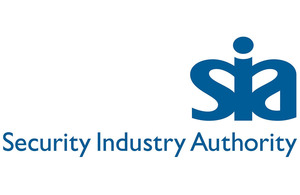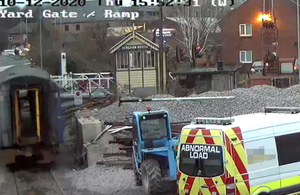Gloucestershire door supervisor fined for working with suspended licence
Press release
A door supervisor whose licence was suspended has been fined after being repeatedly found by the police working illegally in Cirencester.

Stephen Stuckle, 50, pleaded guilty at Cheltenham Magistrates’ Court on 15 December. The court imposed a fine of £250, plus costs of £300 and a victim surcharge of £32.
Stuckle had failed to notify the Security Industry Authority (SIA) that he had been cautioned by the police for domestic assault in 2019. He also neglected to tell the security regulator that he had moved house. He was required to do both these things as a condition of his licence. As a result, he had his Door Supervisor licence suspended in December 2019.
Gloucestershire Police received reports that Stuckle was still working, despite the suspension. Officers found Stuckle working on the door on three different occasions in March 2020 at the Mad Hatter’s Bar and Stoney’s wine bar, which are both in Cirencester.
The SIA invited Stuckle to a formal interview in September 2020, at which he claimed that he had not received notice of his suspension, due to having moved house. The SIA pointed out that his licence would have expired on 29 February 2020. Therefore Stuckle would have been breaking the law on every occasion that Gloucestershire Police found him in March, even if his licence hadn’t been suspended.
Nathan Salmon, of the SIA’s Criminal Investigation Team, said:
This is one of a number of recent cases in which licence holders have claimed not to know that their licence has been suspended. We require all licence holders to tell us immediately if they have relevant convictions, and also when they change address. Claiming not to have received a notification is no defence. Stephen Stuckle showed a complete lack of respect for the law, and for the police, and as a result he now has another conviction. He is also out of pocket and will not be working in security again.
Notes to editors:
Further information:
- The Security Industry Authority is the organisation responsible for regulating the private security industry in the United Kingdom, reporting to the Home Secretary under the terms of the Private Security Industry Act 2001. Our main duties are: the compulsory licensing of individuals undertaking designated activities; and managing the voluntary Approved Contractor Scheme.
- For further information about the Security Industry Authority visit www.gov.uk/sia. The SIA is also on Facebook (Security Industry Authority) and Twitter (SIAuk).
- Media enquiries only please contact: 0300 123 9869, media.enquiries@sia.gov.uk
Published 23 December 2020


